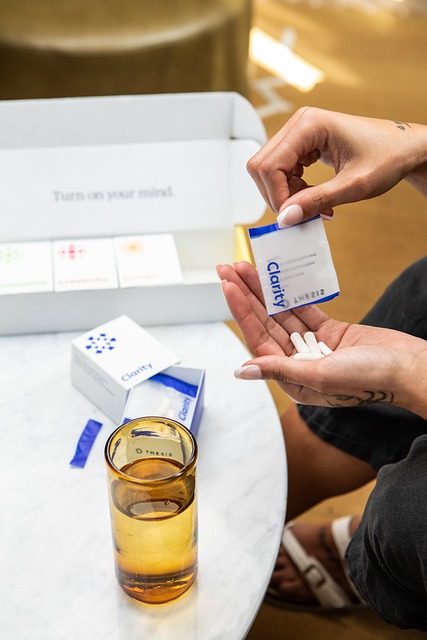Injury recovery and physical care are significantly enhanced by understanding the role of nutrition in physical therapy programs. Balanced diets support tissue repair and optimize patient outcomes during post-injury rehabilitation, especially through mobility restoration exercises and muscle strengthening routines. Proper dietary choices tailor sports injury recovery plans, providing energy for exercise and facilitating muscle rebuilding. Combining proper nutrition with evidence-based techniques improves healing, reduces pain, and prevents future injuries, ultimately enhancing long-term physical care outcomes.
Injury recovery and physical care go hand in hand with proper nutrition. Understanding how diet plays a pivotal role in accelerating healing and enhancing tissue repair is essential for athletes and individuals seeking to optimize their recovery process. This article explores effective strategies to integrate nutrition into various aspects of physical therapy programs, post-injury rehabilitation, and sports injury recovery plans. From mobility restoration exercises to pain management strategies, muscle strengthening routines, and injury prevention tips, discover how nutritional support can transform your healing journey.
- Understanding Nutrition's Role in Injury Recovery and Physical Care
- Integrating Nutrition into Physical Therapy Programs for Optimal Results
- Post-Injury Rehabilitation: A Holistic Approach with Nutritional Support
- Enhancing Sports Injury Recovery: Nutritional Strategies and Exercise Techniques
Understanding Nutrition's Role in Injury Recovery and Physical Care

Injury recovery and physical care heavily rely on understanding the transformative power of nutrition. Proper dietary choices play a pivotal role in supporting individuals through physical therapy programs, particularly during post-injury rehabilitation. When tailored to specific injuries, sports injury recovery plans can significantly enhance healing processes and optimize patient outcomes.
Nutrition not only aids in tissue repair but also contributes to effective pain management strategies. Essential nutrients found in balanced diets support the body’s natural mechanisms for mobility restoration exercises, ensuring individuals have the energy and resources needed to effectively engage in these routines. Furthermore, a well-planned diet can facilitate muscle strengthening routines, a crucial aspect of injury prevention tips aimed at mitigating future risks.
Integrating Nutrition into Physical Therapy Programs for Optimal Results

Integrating nutrition into physical therapy programs is a powerful approach to enhance recovery and support tissue repair for individuals undergoing post-injury rehabilitation or sports injury recovery. Proper nutrition plays a pivotal role in optimizing outcomes, especially when combined with evidence-based mobility restoration exercises and pain management strategies. By incorporating tailored dietary plans, therapists can significantly impact the healing process and overall patient well-being.
In physical therapy programs, nutrition interventions focus on providing the right balance of macronutrients, vitamins, and minerals to fuel the body’s repair mechanisms. This includes promoting protein intake for muscle rebuilding and recovery, as well as anti-inflammatory foods to reduce pain and swelling. Additionally, targeted supplements may be recommended to bridge nutritional gaps left by regular diets, ensuring patients receive all necessary components for effective healing and enhanced performance during rehabilitation exercises, including muscle strengthening routines.
Post-Injury Rehabilitation: A Holistic Approach with Nutritional Support

Post-injury rehabilitation often involves a multifaceted approach to ensure holistic healing and recovery. Nutritional support plays a pivotal role in this process, complementing physical therapy programs and exercise routines. Proper nutrition is essential for tissue repair, muscle regeneration, and overall recovery after an injury.
Incorporating specific nutrients like protein, vitamins, and minerals can aid in mobility restoration exercises by supporting muscle strengthening routines and facilitating pain management strategies. A well-designed sports injury recovery plan should include nutritional guidance to optimize healing and prevent further injuries. By focusing on a balanced diet tailored to individual needs, individuals can enhance their post-injury rehabilitation journey and improve long-term physical care outcomes.
Enhancing Sports Injury Recovery: Nutritional Strategies and Exercise Techniques

Enhancing Sports Injury Recovery through Nutritional Strategies and Exercise Techniques
Proper nutrition plays a vital role in supporting injury recovery and physical care, especially for athletes undergoing post-injury rehabilitation. A well-designed nutritional strategy can aid in tissue repair by ensuring an adequate supply of essential nutrients required for cell regeneration and healing processes. Focus on lean proteins, complex carbohydrates, healthy fats, and a variety of fruits and vegetables to provide the body with the necessary building blocks for muscle repair and recovery. Additionally, incorporating specific nutrients like omega-3 fatty acids, vitamin C, and protein supplements can further accelerate the recovery process.
Complementing nutritional strategies with targeted exercise techniques is essential in physical therapy programs and post-injury rehabilitation. Mobility restoration exercises, such as stretching and range-of-motion activities, help improve flexibility and joint function. Pain management strategies, including progressive strength training and low-impact cardio exercises, can reduce discomfort and promote healing. Muscle strengthening routines should be tailored to the specific injury, focusing on reinforcing surrounding muscles to support the affected area. Incorporating injury prevention tips, like proper warm-up routines and balanced conditioning, can also minimize the risk of future injuries, enabling athletes to return to their sport safely and effectively.
Integrating nutrition into injury recovery and physical care is a comprehensive strategy that enhances the effectiveness of physical therapy programs. By adopting a holistic approach, including post-injury rehabilitation with nutritional support, individuals can optimize their sports injury recovery plans. Combining mobility restoration exercises, pain management strategies, muscle strengthening routines, and injury prevention tips with tailored dietary interventions accelerates healing and promotes faster return to activity. For athletes and active individuals, these nutritional strategies are essential tools to enhance performance, reduce recovery time, and minimize the risk of future injuries.
